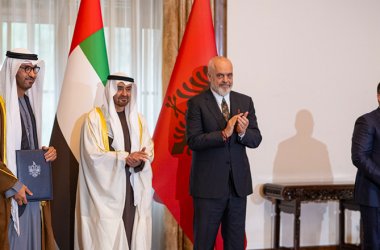The UAE Ministry of Health and Prevention (MoHAP) has recently launched the first advanced digital platform to store the data for health, pharmaceutical government and private facilities, health practitioners, and drug information as well.
The blockchain-based platform was rolled out in collaboration with the Ministry of Presidential Affairs, Dubai Healthcare City and other relevant health authorities. It is aimed at raising the efficiency of MoHAP and other health authorities’ smart health services, in line with the outcomes of the annual meetings of the UAE government.
The new platform is part of MoHAP’s plans for incorporating the artificial intelligence (AI) by 100 percent into health services, pursuant to the UAE Artificial Intelligence Strategy, one of the pioneering projects of the UAE Centennial 2071. It will also help streamline the search for health facilities and its licensed medical and technical personnel, and their expertise, in three steps using MoHAP App.
The MOHAP platform will also enable users to inquire about any medication, in terms of the manufacturer, the active substance, the price, the approved agent, and the method of use.
Additionally, the project would help provide ease, efficiency, and effectiveness of work for health inspectors, besides encouraging medical tourism by providing easy access to high-quality integrated information on health care in the country.
“The transition to the AI technologies is in line with the directives of the wise leadership to make the UAE a leading global model in the proactive confrontation of future challenges and focus on smart health care. The AI-based projects will play a key role in enhancing the capabilities of health care services and providing smart medical solutions, in accordance with the UAE Centennial 2071, and its artificial intelligence strategy,” said Dr. Amin Hussein Al Amiri, assistant undersecretary of the Ministry of Health and Prevention’s Public Health Policy and Licenses.
“This innovative platform comes as part of MoHAP’s strategy to develop smart systems and provide the best smart electronic services, to achieve customer happiness and implement the standards of the Telecommunications Regulatory Authority and smart government enablers,” he said.
Dr. Lubna Al Shaali, director, Public Health Policy Department, said, “This blockchain-based platform would help secure an unchangeable, decentralised and encrypted database with high-security protection to verify data validity and reliability.”
She further noted that the use of blockchain technology would help improve data and information verification and consistency. This, in turn, will provide a high level of transparency and confidence in the healthcare services sector.





